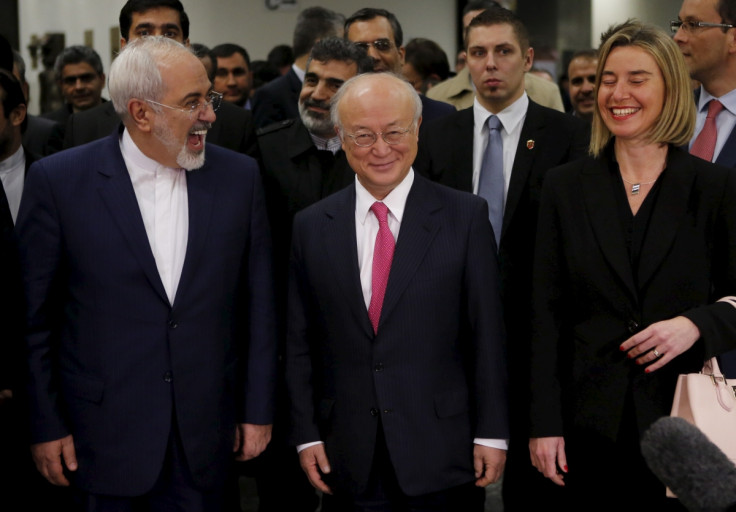Iran nuclear deal: Economic sanctions to be lifted on Iran as IAEA says Tehran has scaled down nuclear programme

Stifling economic sanctions imposed on Iran have been lifted today, as the UN says Tehran has restricted its nuclear programme by putting in place all the measures recommended by the International Atomic Energy Agency (IAEA). Iran's Foreign Minister Javad Zarif had arrived in Vienna, the headquarters of the IAEA, earlier on 16 January expecting the lifting of sanctions imposed by the UN, US and European Union.
The deal was struck on 14 July 2015 between six world powers and Iran, leading to the agreement that Tehran should shrink its atomic programme in exchange for the lifting of some sanctions, which would allow billions of dollars of investment to flow into the country.
Part of the agreement was that the former pariah state would reduce the number of centrifuges installed at its enrichment sites, ship tonnes of its low-enriched uranium materials to Russia and dismantled the core of its Arak nuclear reactor. They also agreed to forego enrichment of uranium, which could be used to make a nuclear weapon.
In return the US, EU and UN have lifted a raft of sanctions allowing Iran to export oil and free $100bn (£70bn) in assets frozen overseas. Iran's President Hassan Rouhani heralded the completion of the deal as a "glorious victory".
Director General of the IAEA, Yukiya Amano, added that it was "an important day for the international community". And in a statement the organisation added: "Iran has carried out all measures required under the (July deal) to enable Implementation Day (of the deal) to occur."
US Secretary of State John Kerry said, according Sky News: "I hereby confirm that the International Atomic Energy Agency has verified that Iran has fully implemented its required commitments. The US sanctions-related commitments are now in effect."
The IAEA had inspectors on the ground in Iran to verify each of the conditions were met. Iran's compliance with the regulations will not only see a number of foreign companies race to do business with Tehran, but could mark a significant milestone in the relationship between Iran and the West.
Only hours beforehand, the US and Iran agreed a prisoner swap, bringing an end to 14 months of negotiations. Four US prisoners including Washington Post reporter Jason Rezaian and an additional student named Matthew Trevithnick, were freed along with seven Iranians, being held in prisons across the US, released in return.
© Copyright IBTimes 2024. All rights reserved.






